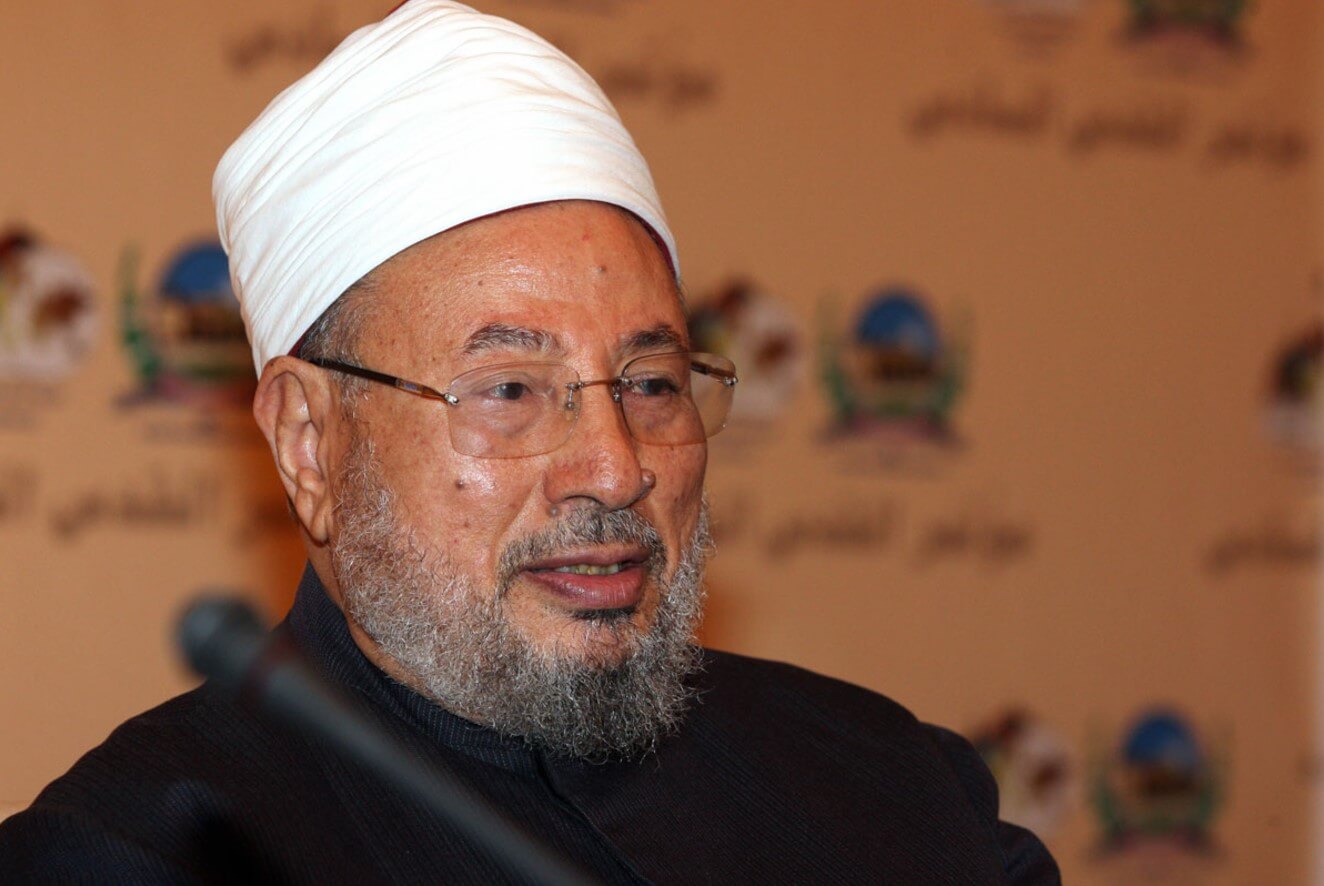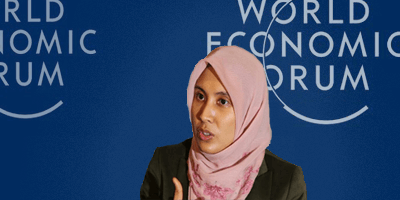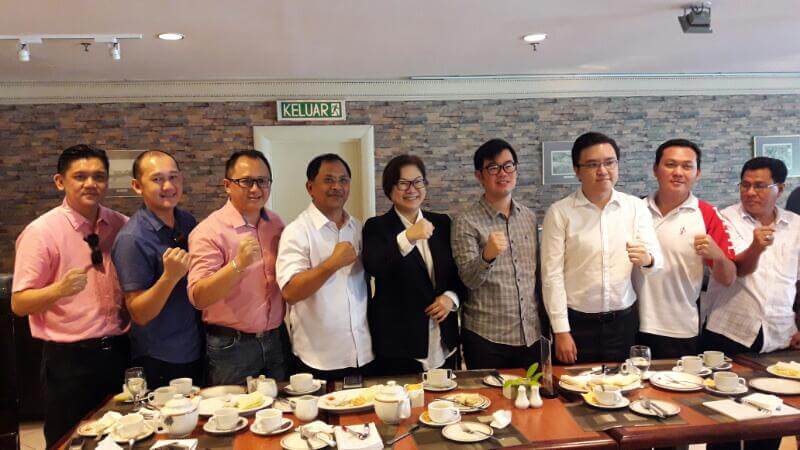It gives me great pleasure to be here today, surrounded by friends and fellow democrats hosted by the Sasakawa Peace Foundation and its distinguished Chairman, Jiro Hanyu.
It is an honour to carry the legacy of cooperation which began with my father, Datuk Seri Anwar Ibrahim – Malaysia’s former Deputy Prime Minister and current political prisoner.
My respectful greetings to Tanaka San as the President of SPF, as well as respected colleagues which form my Malaysian delegation; and distinguished members of the audience.
Friends, we begin this session with a profound sense of sadness at the loss of lives in the recent multiple Earthquakes which have hit the Kyushu and Komamoto regions.
The emotional reverberations can even be felt back in Malaysia – we grieve together with all of you and hope that rescue operations are proceeding smoothly with no more fears in sight.
It is exactly during trying times that we must endure together. The Sasakawa Peace Foundation aims to foster such enduring ties – through its efforts in contributing to the welfare of humankind and sound development of international community together realising world peace.
And it is the Sasakawa Peace Foundation that has brought myself and my two distinguished colleagues together, in Japan:
The Honorable Elizabeth Wong, the Selangor state minister of Tourism, Green Technology and Consumerism, and Senator Siti Aishah, appointed legislator to Malaysia’s Upper House.
Ties between nations are not only fostered through able representatives of our governments, but also through the mutual engagement of diverse representatives stakeholders between Malaysia and Japan, throughout the East Asian community and eventually, throughout the world.
The countries that have been active in the world forum for Muslim Democrats to date have primarily been from Japan, Malaysia, Indonesia and Turkey – four seemingly disparate countries – united through the resolve to stamp a new unique mark of democratic transition.
While many look to the experiences of the West, and stick to the narration that democracy is seemingly only rooted in the evolution of Western civilization; we choose to take a broader outlook, particularly in our region of Southeast Asia.
The Asian Renaissance – Revisited
Datuk Seri Anwar Ibrahim first articulated in his seminal book “The Asian Renaissance” that humanity needs to fulfill the concept of Man as God’s vicegerent on Earth (khalifa Allah fi’l-ard).
He argues in favor of what he called “the Asian Renaissance spirit”, through the words of Muhammad Iqbal:
That I may lead home the wanderer
And imbue the idle looker-on with restless impatience
And advance hotly on a new quest
And become known as the champion of a new spirit in Asia.
Whiter Muslim populated Democracy?
Indeed, when Datuk Seri Anwar Ibrahim first espoused his vision of grouping Muslim Democrats together, the air was abuzz with the excitement surrounding the political and social upheaval of the Arab Spring nations.
In March of 2012; not many could have anticipated the pace of changes, primarily in the regimes of Tunisia, Egypt, Libya and Syria, nor predicted their intensity and ramifications.
We have, however, been forced to continue our efforts after the lost of democratic progress in what has been termed as the Arab fall. But we would be mistaken to write off the episodes between December 2010 and throughout 2011 as a mere blip in the democratic history of mankind.
Samuel Huntington is not someone with whom I would agree on many things, and I hesitate to referencing him at this juncture, but I feel there is one idea he mentions which is worth repeating. I think he makes a pertinent point in his description on the laborious nature of democratic transitions.
Even according to Huntington, the phases of Western democratic transition, which began at the turn into the 19th century were not complete – in the sense of what we now consider basic minimal pluralistic political engagement – until the late 20th century.
Just imagine that for nations like Britain, France and Italy, it took more than a century to reach the pluralistic and inclusive democratic model that we accept as normal today. The United States’ own transition towards democratization that incorporated universal suffrage took over a century for women, and even longer still, for African Americans to fully be able to cast their vote in America.
But, how then, should we expect the Arab Spring nations – that found their nascent beginnings in Tunisian Mohamed Bouazizi’s self immolation, would be completed in a space of less than five years?
Indeed, Tunisia for now seems to be the only lasting byproduct of the Arab Spring uprisings. In Egypt, we are now forced to deal with a coup and further deterioration of human and political rights. And in Syria, worst of all, we are forced to endure one of the cruelest human calamities of recent times and a bloodbath that has now drawn many other nations into a protracted conflict.
Linking our current tragedies to the issues of Muslim Democrats and democracy in the Islamic world, we can see that lopsided democratic political power distribution in Iraq and an undemocratic oppressive regime in Syria led to the emergence of a murderous militant non-governmental force we know now as Da’esh, or ISIS.
So, with the benefit of hindsight, we now know the Arab spring requires some contemplation from our side; and more importantly, patience. It comes as no surprise that in nations devoid of institutional support, democratic framework and structure will require further guidance and vision to prod the process along.
Back now to Samuel Huntington, with whom, as I mentioned, we disagree on more than we agree. In a recent paper entitled ‘Islam and Democracy after the Arab Spring’, Datuk Seri Anwar Ibrahim’s former colleagues at Gergetown University, John Esposito and John Voll, together with Tamara Sonn, expound on the critique of Huntington’s ‘Clash of Civilizations’.
As they remind us, Huntington’s central theses, which incidentally was a catalyst to help spur our Muslim Democrat forum, is his claim of an inherent incompatibility of Islam and Democracy.
As they point out, he wrote, as we are all too familiar, that “the democracy deficit in Muslim-majority countries as due to Islamic societies’ lack of the prerequisites for development of democracy.” Huntington’s argument, as pointed out by Esposito, Voll and Sonn, was that “Western Christian societies were able to develop democracy, but Islamic societies would not be able to.”
But the Georgetown authors countered with the recent Arab Human Development Report in 2004 entitled “Towards Freedom in the Arab World” which observes that :
“There are fundamental principles in Islam which dictate good governance, including the realisation of justice and equality, the assurance of public freedoms, the right of the nation to appoint and dismiss rulers, and guarantees of all public and private rights for non Muslims and Muslims alike”. The report cites a World Values Survey involving nine regions, including advanced Western Countries. Out of all respondents, it was the Arab respondents who were the most likely to agree with the statement that : “democracy is better than any other form of governance.”
Through objective surveying and validated statistical analysis, the report justified that “It is not Islam that stands in the way of freedom or democracy, but political rulers, in power and in opposition, [who] have selectively appropriated Islam to support and perpetuate their oppressive rule.”
At the end, as they say in Malay, “bara yang digenggam biar sampai jadi arang” – achievable outcomes require sacrifice and time. So we can look to the experience of our neighbour Indonesia, who in 1999 — only three years after Huntington’s ominous and misinformed assessments — made the successful leap to a liberalized multiparty democracy.
More than 15 years ago, Indonesia, the most populous Muslim country in the world, went from being a military autocracy to a vibrant, and even boisterous, democracy. Indonesia has successfully held four elections since 1998, peacefully changing ruling parties each time, and it is now an important stable emerging market nation, having a healthy domestic consumption, a dynamic civil society sector and a critical free press.
In addition, it is widely opined that Indonesia’s political freedoms have actually played a critical role in helping to reduce extremist violence. The Atlantic Monthly recently cited the statistic that despite a population of over 200 million, numerous economic challenges and an extremely high percentage of the young adult demographic, the number of so-called “jihadi” fighters from Indonesia considerably lower than almost every other nation in the world, including even Malaysia, per-capita.
These examples from Arab World Development Survey and from Indonesia’s great progress over the last two decades give clear evidence supporting the full potential and compatibility of democracy with Islam and Muslim nations.
Whither the Future for Muslim Democrats?
I would now like to transition to looking forward to the next five to ten years of what I want to see from the Muslim Democrat ‘movement’, if you will, and to discuss some key challenges and potential solutions that we hope to pursue through the World Forum for Muslim Democrats in partnership between Datuk Seri Anwar Ibrahim and the Sasakawa Peace Foundation.
Despite the clearly painful experiences at present in the Muslim world, I am optimistic for an increasingly improving political reality. We see now more than ever the active engagement of citizenry across these nations, in pursuit of better socioeconomic conditions, increased political rights, and lasting commitments towards democratic governance. Citizens will demand greater government accountability as they observe the damning impact of corruption and authoritarianism on their daily lives.
Advances in technology have created new media for communication and information dissemination that are levelling the playing field between oppressive regimes or illiberal democracies — and their populations yearning for justice and freedom.
Furthermore, the increased education and empowerment of key demographic segments bode well for the prospects of democracy in the short to medium term. Pointedly i refer here first to the rapidly increasing role of women in the public and civic sphere throughout the Muslim world. Their increased visibility and participation will rapidly bring many new voices to the call for democracy and justice in each country, and increase the difficulty for the powers that be to ignore these calls for much longer.
Then, second, I refer to the so-called Millenial and post-Millenial generations who within the decade will be the largest single force in the politics of most of the Muslim world. These young adults are growing up with far higher degree of tolerance and empathy than their parents, and are far more likely to support the pluralistic and representative trade-offs inherent of successfully functioning democracy.
A case closest to my heart with regard to my optimism for positive democratic change in the near future is our very own Malaysia.
Malaysia has been governed by one party rule since its independence in 1957. Elections take place but they are to grossly manipulated as election boundaries are drawn to favor incumbent government candidates (gerrymandering), on top of overwhelming ruling-party control of almost all media and draconian anti-protest and anti-press freedom legislation. All of this has earned Malaysia the rank of bottom of the pile in gerrymandering, stated in the recent report of the Electoral Integrity Project report.
The media remains muzzled, with more than 98% of media company ownership belonging directly or indirectly to the government, and the opposition remains the target of political persecution — including notably the arrest and imprisonment of the political opposition leaders whose coalition last round won the majority of the popular vote.
So why am I optimistic? Internet news and social media channels have created avenues for widespread critique of government leaders and corruption scandals. Despite a nearly ubiquitous control by pro-government operators of print and broadcast media — and even more recently the majority of online news-sites — web traffic, viewer interest, posting, reposting, tweeting and retweeting is all far more in favor of the opposition and against the status quo ruling parties that anything previously imaginable.
During my most trying times all I need to do is to glance up the commentary section of our Prime Minister’s Facebook to note the widespread disaffection against his authoritarian and wasteful tendencies.
Young people are now more aware of the flaws of the current government, which ends up robbing them of a secure future, like when they see online articles citing Merril Lynch’s recent prediction that by 2030 Malaysia will end up becoming a nation of only the young and the poor. The reality is Malaysia is reaching the point where no amount of government tampering may be enough to keep an intolerable government in power, and the popular opposition out of their rightful place in leadership.
Moving forward, with Women charting history
This bright future I envision is not without challenges to resolve, and I believe we are prepared and able to address these challenges as we move forward toward the successes in store for Muslim Democracies.
The first, and highest order challenge, i believe, is a gap in the articulation of overarching principles of Muslim Democrats and pluralistic, representative, elected civic engagement in the context of Islam and Muslims. Resolving this need I think is a challenge uniquely suited to the original convener of the World Forum for Muslim Democrats.
Datuk Seri Anwar Ibrahim’s next initiative is to bring together the key 5-10 visionary Muslim leaders and scholars who understand this need. Specifically to this end, I see key leaders joining with Datuk Seri Anwar such as potentially the former Turkish Prime Minister and President Abdullah Gul, the co-founder of Tunisia’s Ennahda Party Rached Ganouchi, and the former Premier of South Africa’s Western Cape Province and the South African Ambassador to the United States of America, or Nobel-prize-winning Yemeni politician Tawakkol Karman. The coalition and cooperation of these luminaries including Datuk Seri Anwar himself, would provide a clarity and direction of the Muslim Democratic cause that can inspire and direct an entire generation of new leaders around the Muslim world.
The second major challenge of providing sufficient avenues and opportunities for women to claim their rightful place in balancing the representativeness of leadership and civic engagement in the Muslim world. Impediments to women’s political engagement and empowerment are most certainly not a uniquely Muslim problem, which I have had reconfirmed clearly through our meetings with both government and opposition leaders right here in Japan. Which should make it all the more commendable for Muslim Democrats to strive to show leadership on this issue.
Given the rich and long Islamic history for women’s empowerment involvement in Islamic history, I worry sometimes that it may seem as though the role of women in legitimate Muslim political sphere is narrowed further as time goes by — rather than expanding and improving.
The holy Quran mentions women as distinct individuals with clear role to play in the larger scope of society and the Muslim world.
One important work is the research done by Sh Akram Nadwi of Cambridge University, Al-Muhaddithat: The Women Scholars in Islam. A decades work spanning 40 volumes with nearly nine thousand women scholars, covering from the Prophet’s time to recent history. His monumental work provides an important insight into the role women played during the formative phase of Islamic history,
We can find examples of respect for women’s intellect and ability with women involvement in important public office from the early days of Madinah. During the time of the second Caliph, Umar al-Khatab, he appointed Shifa’ bint Abdillah al-Adawiyyah as inspector of the market in Madinah. For a small burgeoning community the market place was the heart of the community at that time akin to the position of regulator in charge of the Tokyo Stock Exchange.
One fourth of Shariah, or Islamic law has been narrated by Aishah, the wife of the prophet, alone through her recordings of the sayings of Prophet Muhammad. She left a legacy of an expert in religious law, poetry and a leader until he last days. It shows the very foundation of our religion lies with female scholars like herself and other female companions who were constantly around the Prophet Muhammad.
Another interesting example would be the eleventh century scholar, Fatimah bint Sa’d Al-Khayr, whose travels span from Western China in persuit of knowledge, moving through madrassas in Bukhara, Samarkand, Baghdad, Damascus and Jerusalam, teaching both men and women before eventually passing away in Cairo.
An amazing feat for a women scholar living in the 11th century.
In fact throughout the centuries, a good number of male narrator of the prophet Muhammad’s saying has been regarded as weak or worse fabricators but no women hadith scholar has been ever accused of any wrongs or weaknesses, a testament to the quality and accuracy of hadith transmission by women.
If the companions of the Prophet Muhammad is a model for us to follow, we must not only dispel the prejudice that women has no place in the public sphere, but we must encourage and provide the platform for women to take part as equal stakeholders in public discourses and charting the future of Muslim democrat. Women scholars in the past enjoyed great respect and authority in the community they served.
But, again, as an example of where we often find ourselves today, just last year Malaysia saw a women’s conference that was held devoid of any female speaker throughout the conference — the type of event that is now widely mocked on social media, but which is often a result of the type of thinking that comes from a lack of visible leadership roles held by women in the public sphere. Needless to say women should have more say and play a central role in charting their roles, not at the expense of our male counterpart but as equal partners on equal footing.
Muslim Democrats must be leaders to right any trend to disenfranchise women, and we must work to set us back on the correct course. On this note, I personally have begun the formal proposal for the development of a Muslim Women Democrats program to provide a platform for collaboration, support and encouragement of women politicians where discussions on best practices, debate on current issues, mentorship and candidate training can be achieved for the development of successful women Muslim Democrats.
I had the opportunity to have my mother as a mentor, and as you may know she was the President of the People’s Justice Party of Malaysia and the first female head of a political party in ever in this country. But with little to no organic opportunities for female to female political mentorship and guidance, I believe it would be a tremendous advance to see others have the same opportunity.
Before closing, I thank you all again, and most particularly the Sasakawa Peace Foundation, for the opportunity to share these thoughts with you today on the status and outlook for Muslim Democrats in the world today. While the initial excitement of a democratic wave rapidly transforming the Arab world has long passed, the very positive prospect for Democracy in the Muslim world is very very much alive and well. I look forward to discussing these topics with you all at your earliest convenience.
Nurul Izzah Anwar
Member of the Malaysian Parliament
*Speech delivered for the ‘Muslim Democrat &Malaysia’ forum
Organized by Sasakawa Peace Foundation
Tokyo, Japan
20 April 2016



